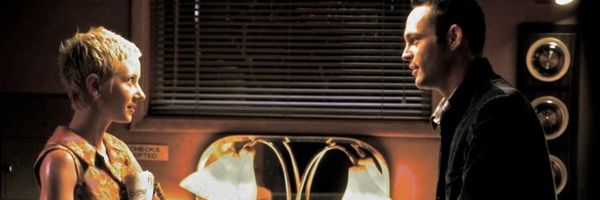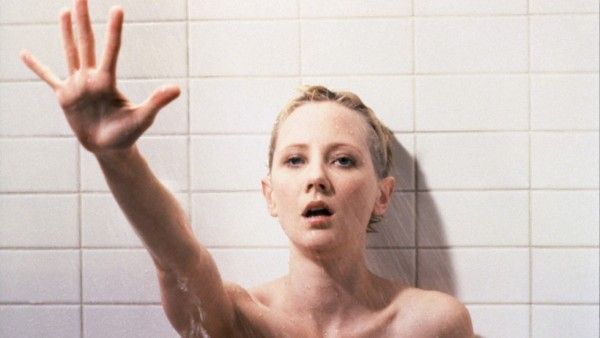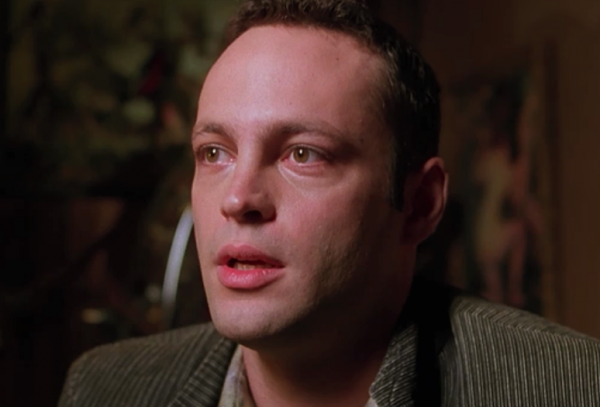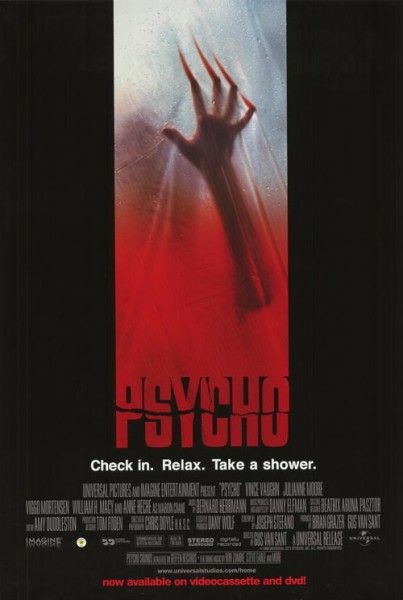Ambitious projects are the thing of legend in Hollywood. Some gambles pay off, like casting Heath Ledger as The Joker in The Dark Knight, or crafting an entire film to look like it’s one shot in Birdman. And some gambles simply don’t work, but remain noble efforts. One of the most ambitious of choices in recent memory came from filmmaker Gus Van Sant, who followed up his Oscar-winning drama Good Will Hunting with a remake of Alfred Hitchcock’s Psycho. Not only was Van Sant remaking a classic, but he was doing so shot-by-shot—each frame would be copied from what Hitchcock did in the original film.
Van Sant’s movie was released in 1998 with a cast that included Vince Vaughn, Anne Heche, and William H. Macy, and it bombed hard. The film was savaged by critics as tedious and pointless, and it failed to make a mark on the box office. Many were left wondering why Van Sant would attempt such a fool’s errand, and while it was clear to some that this whole film was an experiment, the entire point of it all was lost on others.
During a recent appearance on Marc Maron’s WTF podcast promoting his new film Don’t Worry, He Won’t Get Far on Foot, Van Sant took a beat to explain the motivation behind his Psycho remake, and it’s a fascinating story. To begin with, Van Sant was looking for a way to push back on Hollywood’s quest for popular IP:
“There’s a whole reason behind it… I think the process of doing it was the learning, it wasn’t necessarily the result. It wasn’t really about learning about Hitchcock, it was more that during the 90s the joke about the executives was that they would rather make a sequel than they would an original piece, because there was less risk. They would rather continue a story that’s already known in the public, and they were really searching for some way to do that. Now they’ve found out that comics is the way to do it… but back in the 90s they hadn’t found that yet.”
The idea to remake Psycho was something Van Sant had actually been toying around with since the 1989 release of his film Drugstore Cowboy:
“When I did Drugstore Cowboy, I was all of a sudden meeting with the heads of studios because they knew that actors would work with me, therefore if they got me on their movie they could get the actor that they wanted. So it was less about me than it was about the actors. During one of the meetings, Casey Silver at Universal brought in all of his vice presidents, and one guy was head of the library, and he said, ‘In the library we have old films that you could remake, we have scripts that haven’t been made yet that you could make,’ and it just reminded me of that thing that they wanted to do, which is remake something. And I said, ‘What you guys haven’t done is try to take a hit and remake it exactly. Rather than remake it and put a new spin on it, just remake it for real,’ because I’d never seen that done yet as an experiment. The whole thing seemed experimental to me anyway so I thought why not, and they laughed, they thought it was silly, ridiculous, absurd, and they left—they said, ‘We won’t be doing that.’"
As it turns out, being nominated for a Best Director Oscar changed Universal’s tune real quick:
“Every time I would meet with Casey I would bring it up, and I locked in on Psycho—I’m not sure why Psycho, but it just seemed like the movie that would work the best. I would bring it up again and they would laugh again. And then later when we did Good Will Hunting and it did really well at the box office, it also got nominated for nine Oscars or something. But what they like to do the week before the Oscars happen is they like to get new deals in place with the people that are nominated, because as soon as you win they’ve got your movie going—they can just lean over to their buddies and say, ‘We’ve got that guy’s next movie’. Then they forget that they have it after the night’s over. So they were trying to make a deal with me, and I had a deal with Paramount, I had a deal at some other studio, and my agent was saying, ‘Universal really wants to do deal with you, have you got anything for them?’ And I was like, ‘Universal, Universal…oh yeah, tell them Pyscho, frame-by-frame, new cast, in color, and that’s the idea,’ and then my agent calls back and says, ‘They think that’s fantastic.’ So all of a sudden they were in.”
So Van Sant had the go-ahead to remake Psycho, but he received a warning from friend and composer Danny Elfman, who would eventually compose the score for the remake:
“Then I had to make the decision whether I really wanted to do it, and I was talking to Danny Elfman who I wanted to do the score, because he was so good at doing Bernard Hermann-style scores. He said, ‘You know they’ll kill you if you make this,’ he knew. And I said, ‘Who will kill me?’ and he said, ‘Everyone. The critics. Everybody that loves Psycho will kill you,’ and I said, ‘Yeah but Danny this is an experiment, this is not about who’s gonna get killed. This is about just doing it.’ And I thought, ‘It doesn’t matter if they kill me,’ and then later when I got killed it hurt.”
Van Sant admits Psycho was an experiment that didn’t work, but acknowledges the film has gained more appreciation as an art piece in recent years:
“So it didn’t work. But the idea was whether or not you could remake something and it would repeat the box office. That was the sort of weird science experiment… It’s more important now I think, because people like yourself will ask questions about it. It’s more alive now than it was back when it failed, just with the art world or the modern world.”
While I don’t necessarily think the Psycho remake is good, I love that it exists. It’s an experiment, as Van Sant said, and it serves as proof that there’s something magical about a singular film. It can’t be redone to the T decades later to the same effect. It exists in a time capsule of sorts, and the specific nature of when and how it was made is as much in its DNA as the script, performances, or cinematography. In that way, Van Sant’s remake is kind of essential, and serves as a word of warning to Hollywood's obsession with reboots, remakes, and existing IP. Some things never change.




